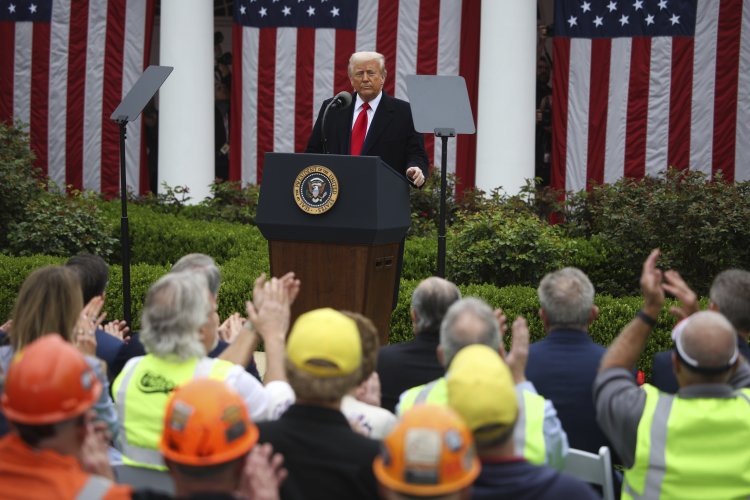Trump sets 10 percent universal tariff; rates higher for major trading partners
In a recent address in the Rose Garden, Trump emphasized the seriousness of the issue, stating, “Chronic trade deficits . . . are a national emergency.”

“For decades, our country has been looted, pillaged, raped and plundered by nations near and far, both friend and foe alike,” Trump stated during an event in the White House Rose Garden attended by most of his Cabinet. “But it’s not going to happen anymore.”
According to senior White House officials, the initial 10 percent tariff will take effect on April 5, with higher tariffs for the identified offenders set to start on April 9.
“For years, hardworking American citizens were forced to sit on the sidelines as other nations got rich and powerful, much of it at our expense,” Trump remarked. “But now it's our turn to prosper, and in so doing, use trillions and trillions of dollars to reduce our taxes and pay down our national debt, and it'll all happen very quickly.”
This announcement, heralded as “Liberation Day” by the White House, concludes a period of tariff uncertainty that has unsettled financial markets, worried consumers, and prompted foreign diplomats to rush to Washington to seek exemptions. The tariffs introduced by Trump represent the most substantial U.S. protectionist trade measures since the 1930s, a time when Congress imposed tariffs on over 20,000 goods, exacerbating the Great Depression.
Trump is invoking a national emergency under the International Emergency Economic Powers Act, which allows him significant control over import regulations. He is the first president to apply this law to justify tariff increases, a move that may face legal challenges.
Unnamed White House officials, who briefed reporters on the declaration, contended that the growing and persistent U.S. trade deficit, which reached a record $1.2 trillion last year, constitutes a national emergency that is undermining the country’s manufacturing sector and defense industrial base.
The newly introduced “reciprocal” tariffs will not be in addition to separate sector-specific tariffs that Trump has already implemented on autos, steel, and aluminum, with further tariffs anticipated for lumber, copper, pharmaceuticals, semiconductors, and possibly critical minerals.
As for Canada and Mexico, the U.S. will not impose reciprocal tariffs on them at this stage, although this could change in the future. White House officials explained that Canada and Mexico are currently exempt because both nations are already subject to 25 percent tariffs that Trump imposed and then mostly suspended last month to urge them to enhance efforts against fentanyl trafficking into the United States.
Officials added that the suspension of duties for goods adhering to the rules of origin established in the U.S.-Mexico-Canada Agreement will remain in effect for the time being.
Camille Lefevre for TROIB News
Find more stories on Business, Economy and Finance in TROIB business












